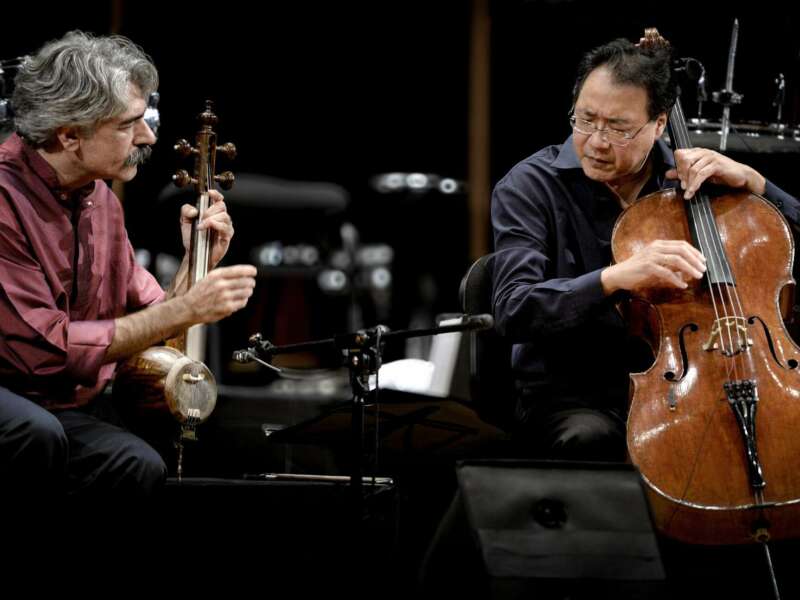The U.S. Justice Department Sues Live Nation and Ticketmaster
An antitrust lawsuit has been filed against the two merger companies, accusing them of monopolizing markets in the live music industry
Alongside 30 state and district attorneys general, the U.S. Justice Department has filed a civil antitrust lawsuit against Live Nation Entertainment Inc. and its wholly-owned subsidiary, Ticketmaster LLC (Live Nation-Ticketmaster) for its alleged “unlawful monopolization” of markets across the live music industry, harming fans, artists, and venues.
Including a request for structural relief, the complaint seeks to restore competition in the live concert industry, provide better options at lower prices for fans, and open venues for working musicians and other performance artists.
Filed in the U.S. District Court for the Southern District of New York, the 128-page lawsuit alleges that Live Nation-Ticketmaster is in violation of Section 2 of the Sherman Act, which has seen fans deprived of ticketing innovation and left to use outdated technology while paying more for tickets than fans in other countries, the press release states.
The suit adds that Live Nation-Ticketmaster has simultaneously exercised its power over performers, venues, and independent promoters in harmful ways, and imposed barriers to competition that “limit the entry and expansion of its rivals.”
Describing itself as “the world’s leading live entertainment ticketing sales and marketing company,” Live Nation Entertainment Inc. is headquartered in California.
Live Nation owns or controls more than 265 concert venues in North America, including more than 60 of the top 100 amphitheaters in the U.S., generating over $22 billion globally in annual revenue from concerts, ticketing, plus sponsorship and advertising. The New York Times adds that Live Nation also controls around 80% of primary ticketing at major concert venues.
Ticketmaster sells concert tickets when they’re first on sale and operates resale platforms that allow fans to resell those tickets at a later time; founded in 1976, it is easily the largest concert ticketing company in the U.S. ABC News writes that in 2023, Ticketmaster said it distributed over 620 million tickets.
In 2009, Live Nation (then known as Live Nation, Inc.) and Ticketmaster (then known as Ticketmaster Entertainment, Inc.), agreed to merge — a move that was approved by federal regulators in 2010, CBS News reports.
“We allege that Live Nation relies on unlawful, anticompetitive conduct to exercise its monopolistic control over the live events industry in the United States at the cost of fans, artists, smaller promoters, and venue operators,” said Attorney General Merrick B. Garland. “The result is that fans pay more in fees, artists have fewer opportunities to play concerts, smaller promoters get squeezed out, and venues have fewer real choices for ticketing services. It is time to break up Live Nation-Ticketmaster.”
“The live music industry in America is broken because Live Nation-Ticketmaster has an illegal monopoly,” added Assistant Attorney General Jonathan Kanter of the Justice Department’s Antitrust Division. “Our antitrust lawsuit seeks to break up Live Nation-Ticketmaster’s monopoly and restore competition for the benefit of fans and artists.”
The complaint claims that Live Nation-Ticketmaster’s exclusionary practices also protect what it refers to as its “flywheel,” its self-reinforcing business model that captures fees from fans and sponsorship to lock artists into exclusive promotion deals, before using its cache of live content to sign venues into long-term exclusive ticketing deals — a cyclical process.
Further, the lawsuit alleges that Live Nation-Ticketmaster engaged in tactics to eliminate competition in the markets, including exploiting its longtime relationship with Oak View Group — a potential competitor-turned-partner, that has avoided bidding against Live Nation for artist talent and influenced venues to sign exclusive agreements with Ticketmaster.
The list of alleged tactics also included Live Nation-Ticketmaster supposedly retaliating against potential entrants to the U.S. concert promotions market; threatening venues that work with rivals; locking out the competition with exclusionary contracts; blocking venues from using multiple ticketers; restricting artists’ access to venues; plus acquiring competitors and competitive threat.
According to CBS News, Live Nation stated that the suit “won’t solve the issues fans care about relating to ticket prices, service fees, and access to in-demand shows,” adding that “[c]alling Ticketmaster a monopoly may be a PR win for the DOJ in the short term, but it will lose in court because it ignores the basic economics of live entertainment … competition has steadily eroded Ticketmaster's market share and profit margin.”
“We will defend against these baseless allegations, use this opportunity to shed light on the industry, and continue to push for reforms that truly protect consumers and artists,” Live Nation said.
Unless it is dismissed, the lawsuit has begun what is likely to be a long trial — Eleanor Fox, professor emeritus at the NYU School of Law, tells PBS News that there may be months of arguments before a ruling, and that if a judge issues a break up, an appeal could see the case extended for years.
“[This lawsuit] reflects the latest efforts by the Justice Department to combat corporate misconduct,” said Deputy Attorney General Lisa Monaco. “Our fight against corporate wrongdoing includes an intense focus on anticompetitive conduct — which disadvantages consumers, workers, and businesses of all kinds … Today’s action is a step forward in making this era of live music more accessible for the fans, the artists, and the industry that supports them.”
“The Department is committed to competition throughout the economy, including in live music,” continued Acting Associate Attorney General Benjamin C. Mizer. “As our complaint alleges, Live Nation-Ticketmaster monopolizes the markets for concerts and other live events at the expense of fans, venues, and artists across the country. The Department is proud to bring this case to restore competition to this industry.”





































